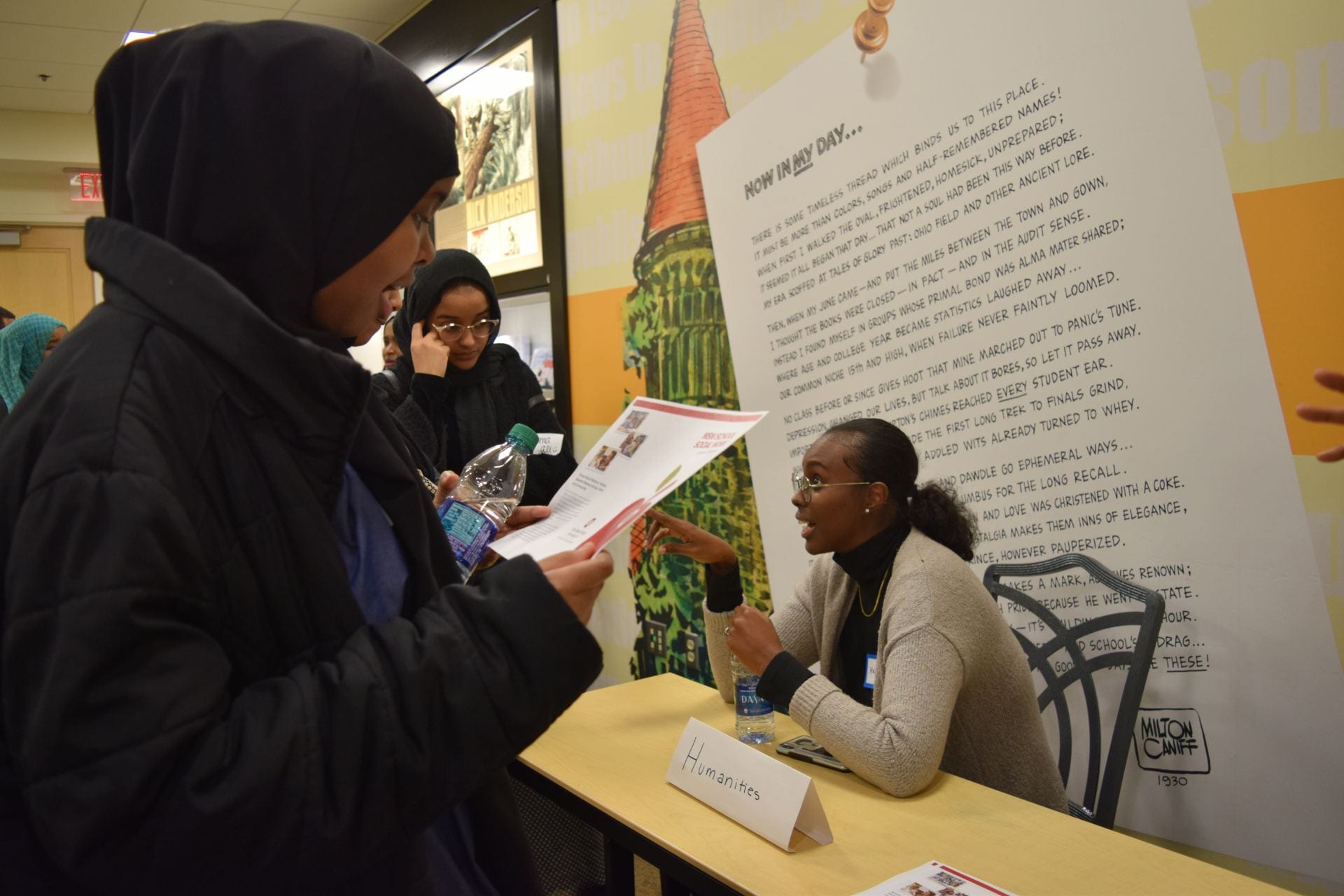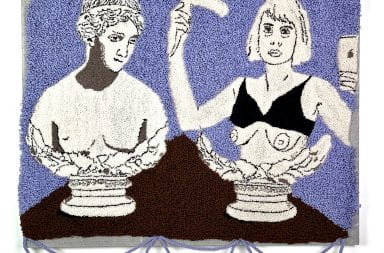
Students meet with Somali-American professionals at the SSA Career Night on Jan. 18. Credit: Momina Tashfeen | Lantern Reporter
For Ahmed Shukri, his career took off after initiating a conversation with a deputy sheriff working beside him at an Ohio State football game. As the first Somali-American deputy at the Franklin County Sheriff’s Office, there wasn’t anyone in his own community who could guide him.
“I was going to Ohio State, working a football game, and there was a deputy right beside me, and for three hours we talked about the job,” Shukri said. “I was the first Somali-American deputy, so there was nobody else I could go out and talk to.”
Shukri took part in a panel as the Somali Student Association hosted a “Career Night” on Friday, which featured panelists who gave Ohio State Somali students a chance to network and receive career advice from people in their community. Panelists included Ohio State alumni with careers ranging from nursing students and entrepreneurs to social workers, educators and government officials.
Safiyo Mohamud, a third-year in international studies, said the career fair helped her connect with people from her community who have had success in their careers and who like Shukri were the first Somali-Americans in their fields.
“A lot of us [Somali-American and immigrants] are first-generation college students, so many of us don’t have mentors in our field,” Mohamud, president of SSA, said. “Lucky for us, there are older people than us that have made it.”
Hanad Duale, founder and CEO of Kare Intellex Inc. — a mobile platform for home caregivers — said that in addition to seeking help within the field, it is important to get out and be a part of the community.
“People will see you differently,” Duale said about engaging with the community. “Along with having good intentions, volunteering allows for relationships to be nurtured, which is a vital aspect in networking effectively.”
Siham Abdi, a STEM panelist, stressed the importance of being open to opportunities and not being scared of rejection.
“The worst thing you’ll ever hear is ‘no,’ so apply to everything,” Abdi said. “Get involved with everything.”
Being involved in everything also opens the doors for diversity, which Abdi describes as the best and most important part of her job.
“Black women are dying three times as more as their counterparts. Two percent of midwives are black. In hospitals, there’s a language barrier and a cultural one, hence the importance of being more diverse in areas where diversity isn’t big,” Abdi said.
After the panel, students had the opportunity to network and have one-on-one discussions with their successful fellow Somali-Americans.
“People in my age group are very fortunate to have quite a few people that have reached these career paths, and are excelling in them,” Mohamud said.


